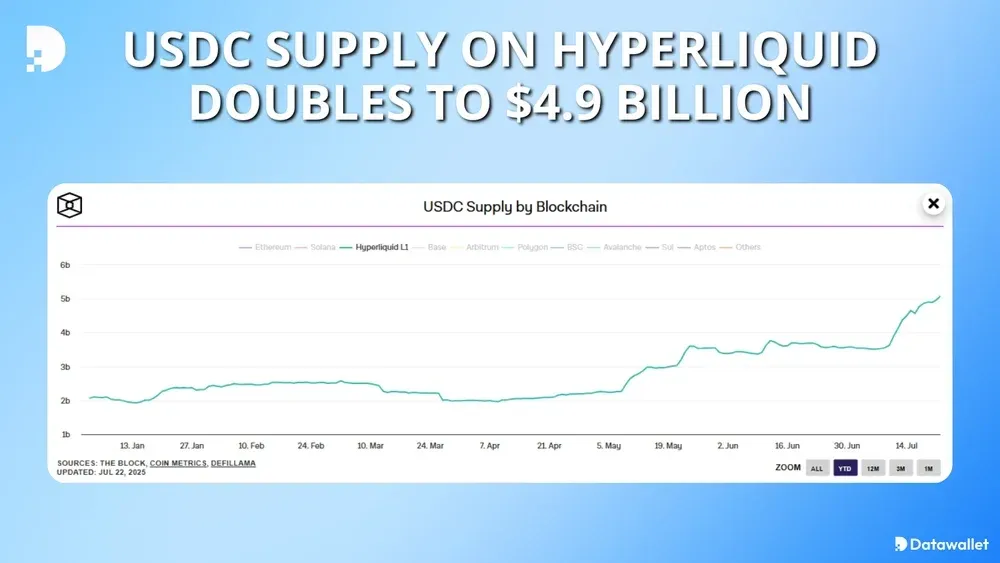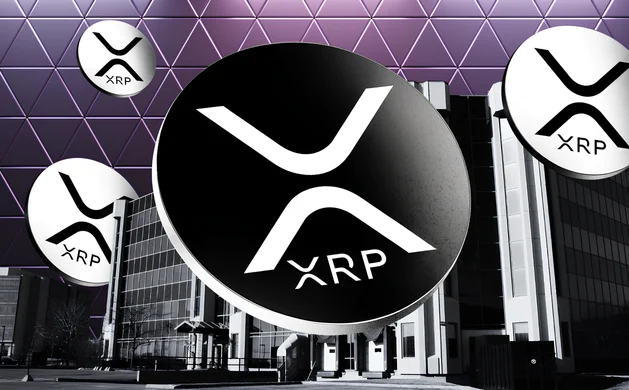Coinbase Debuts Perpetual Futures Trading For US Clients

GM. Coinbase has launched perpetual futures trading for U.S. users, marking a major shift in the domestic derivatives market following the GENIUS Act, sending COIN to a record ATH.
Meanwhile, Ethereum raised its block gas limit to 45 million units, SpaceX discretely moved $150 million in Bitcoin, and Western Union is eyeing stablecoin pilots in emerging markets.
The week continues with new products, bigger blocks, and expanding rails. 👇
Coinbase Debuts Perpetual Futures Trading For US Clients
Coinbase introduced perpetual futures trading for U.S. customers on Monday, offering nano Bitcoin and Ethereum contracts regulated by the Commodity Futures Trading Commission (CFTC). The contracts feature 10x leverage with an extended five-year duration, providing American traders with new strategic tools.
This launch follows Kraken’s entry into the regulated perpetual futures market last week, spurred by President Trump's enactment of the GENIUS Act. Coinbase highlighted that perpetual futures, dominant globally but previously inaccessible in the U.S., are now viable due to improved regulatory clarity.
Unlike traditional monthly futures, Coinbase's new perpetual contracts allow positions to remain open for up to five years without rollover, with competitive fees starting at 0.02%. Coinbase Financial Markets aims to pull market share from offshore derivatives platforms by offering this long-awaited product to U.S. traders.
Coinbase stock surged to an all-time high above $437 after Trump's crypto-friendly legislation was signed into law last Friday. The exchange currently commands a market capitalization exceeding $100 billion, driven by increased investor optimism amid crypto's legislative wins.
Ethereum Raises Block Gas Limit to 45 Million Units
Ethereum’s block gas limit increased to 45 million units on July 22, marking a 25% rise from the 36 million cap set earlier this year. The change was activated at block 22,968,004 after nearly half of all validators signaled support. Ethereum gas limits control the total computational effort per block, directly impacting the number of transactions processed.
The adjustment does not require a hard fork and occurs once enough validators adopt the updated configuration. Developers aim to push toward a 60 million target in the short term, as part of Ethereum’s scaling roadmap. Safeguards like EIP-7983, which Vitalik Buterin proposed earlier this month, are in place to cap single transaction gas use at 16.77 million units and reduce attack risk.
SpaceX Moves $150M in Bitcoin After Long Silence
On July 22, Elon Musk’s aerospace firm SpaceX transferred 1,308 BTC, worth $150 million, from a long-dormant wallet to a newly created address. Blockchain data from Arkham Intelligence confirmed the transaction, marking SpaceX’s first crypto movement since June 2022. During that earlier period, the company moved over 17,000 BTC to Coinbase across several batches.
The purpose of the latest transfer remains undisclosed, and SpaceX has not responded to requests for comment. According to Arkham, the firm still holds 6,977 BTC valued at $825 million, while Tesla holds another $1.36 billion in bitcoin. The timing coincides with broader institutional adoption of crypto, spurred by recent legislative shifts and pro-bitcoin political rhetoric in the U.S.
Western Union Explores Stablecoins as GENIUS Act Passes
Western Union CEO Devin McGranahan confirmed on July 22 that the company is exploring stablecoins for remittances, foreign exchange, and savings products. He cited demand in underserved markets and praised new U.S. legislation for creating a regulatory foundation. The announcement comes days after the GENIUS Act passed, providing clarity for stablecoin issuance and use.
McGranahan said pilot programs are underway in Latin America and Africa, focused on faster settlement and cheaper conversions. Western Union is also weighing wallet integrations and infrastructure partnerships for crypto on-ramps. The company aims to cut global remittance fees below the UN’s 3% target, leveraging stablecoins to bypass banking intermediaries.
Data of the Day
The USDC balance on decentralized exchange Hyperliquid doubled in 2025, reaching $4.9 billion by July 22 as derivatives trading volume surged. The platform processed $150 billion this month alone, capturing 11.5% of Binance’s perpetuals market share. Traders are increasingly deploying capital onchain, signaling trust in Hyperliquid’s smart contract infrastructure.
Hyperliquid now commands 83% of the decentralized perpetuals market, outpacing all other DEX competitors. This dominance reflects a broader shift toward high-liquidity, non-custodial platforms with ultra-fast execution. Rising USDC usage indicates maturing DeFi rails, where users are now holding large balances long-term without relying on centralized services.

More Breaking News
- Roman Storm’s legal team is weighing a mistrial after witnesses failed to clearly link Tornado Cash to the cybercrimes described during trial testimony.
- The U.S. Department of Justice has dropped its probe into Kraken co-founder Jesse Powell over allegations tied to hacking a nonprofit’s digital communications.
- Telegram users in the United States can now access the app’s native TON Wallet to buy, sell, and transfer crypto directly inside the platform.
- SharpLink increased its ETH holdings to 360,807 by raising $97 million through stock sales and earning staking rewards of 567 ETH since early June.
- PumpFun private investors sent over $160 million in PUMP tokens to exchanges as the memecoin’s price dropped below its original sale value.
- Electric car maker Volcon raised $500 million to launch a Bitcoin treasury program and plans to rebrand itself as Empery Digital with ticker EMPD.
- A London gang has been convicted for kidnapping a barber they believed was a crypto millionaire but who only had nine dollars in his wallet.
For the latest updates on digital asset markets, follow us on X @Datawalletcom.
.webp)
Written by
Jed Barker
Editor-in-Chief
Jed, a digital asset analyst since 2015, founded Datawallet to simplify crypto and decentralized finance. His background includes research roles in leading publications and a venture firm, reflecting his commitment to making complex financial concepts accessible.







